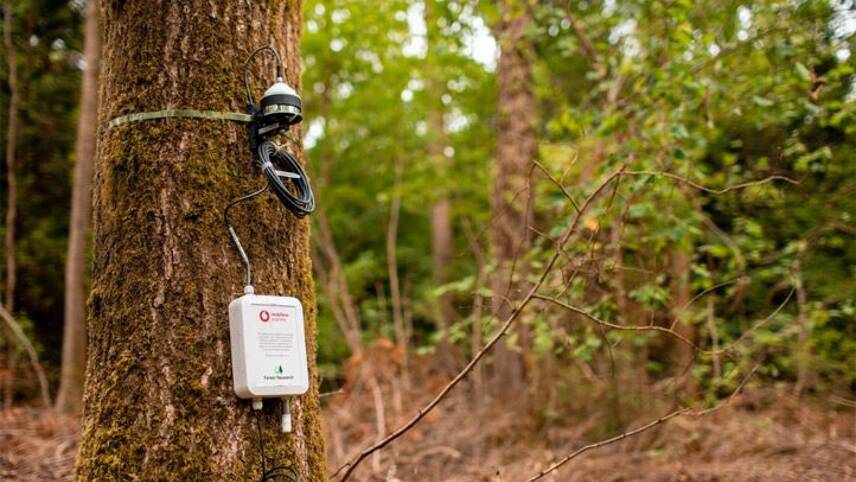Register for free and continue reading
Join our growing army of changemakers and get unlimited access to our premium content

The pilot will assist Defra’s 25-year Environment Plan
Fresh off pledging to be powered by 100% renewable electricity by the end of July 2021, Vodafone will now work with Defra and Forest Research to monitor tree growth and uncover ideal growing conditions to help capture more carbon.
A three-month pilot in Forestry England’s Alice Holt forest, near Farnham in Surrey, and Harwood forest, near Rothbury in Northumberland will see Narrowband Internet of Things (NB-IoT) technology connect to sensors attached to trees. The sensors will collect data on temperature, humidity and soil moisture, on tree growth and function without the need for frequent site visits, and the impact these will have in storing carbon.
Vodafone’s UK business director Anne Sheehan said: “Tackling climate change requires radical thinking and our forests will be vital to this. Our IoT technology enables us to connect trees and monitor performance, which is a perfect example of how technology can be used in new ways to help create a more sustainable future.”
The pilot will assist Defra’s 25-year Environment Plan, which includes a commitment to increase tree planting across the UK to 30,000 hectares per year by 2025. The Government recently rolled out a £640m Nature for Climate Fund to boost tree planting and environmental restoration projects in the UK over the next five years.
However, the UK Government spent almost £20m less on tree planting in the financial year 2017-18 than it did in 2014-15, according to Friends of the Earth (FotE).
On trees, the Committee on Climate Change (CCC) has maintained that 20,000-27,000 hectares of land must be rewilded annually between 2020 and 2050, if the UK is to reach its long-term net-zero goal. But over the past five years, less than 10,000 hectares have been rewilded annually.
Defra’s chief technology officer Malcolm McKee added: “Trees are a unique natural resource that play a crucial role in combating the biodiversity and climate crises we face.
“This exciting partnership uses newly-emerging IoT technologies to improve our understanding of the impacts of environmental change on our nation’s forests, which will help inform our policymaking. The new technology provides better quality data and importantly, allows us to monitor places that current technologies cannot reach.”
The Defra announcement follows the news that scientists have mapped the entirety of the planet’s terrestrial habitat, creating a resource that will help businesses and investors measure and minimize their impacts on natural resources and biodiversity.
The map, which claims to be the first of its kind, was published in the journal Biological Conservation late last week following extensive research from scientists at the UN’s Environment Programme arm (UNEP). Before its publication, such in-depth data was only available for areas classed as ‘protected’ and ‘key for biodiversity, which are accountable for just 15.1% and 8.8% of land respectively.
Matt Mace


Please login or Register to leave a comment.